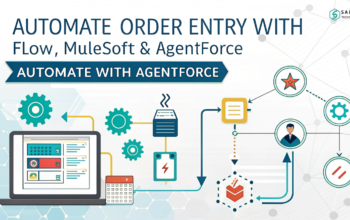Salesforce is a leading cloud-based customer relationship management (CRM) platform that offers a suite of tools and services to help businesses manage their relationships and interactions with customers and potential customers. It provides a centralized platform where companies can store and access customer data, track sales leads, manage marketing campaigns, and provide customer support, among other functionalities.
Components Of Salesforce
Key components of Salesforce include:
- Sales Cloud: This module helps businesses manage their sales processes, track leads, opportunities, and sales pipelines. It enables sales teams to streamline their workflows, automate tasks, and forecast sales.
- Service Cloud: Service Cloud focuses on customer service and support, providing tools for managing customer inquiries, cases, and interactions across various channels like email, phone, social media, and live chat.
- Marketing Cloud: This module helps in creating and managing marketing campaigns, email marketing, social media marketing, and analyzing campaign performance to optimize marketing strategies.
- Commerce Cloud: Formerly known as Demandware, Commerce Cloud enables businesses to create seamless e-commerce experiences for their customers, from online storefronts to order management and customer service.
- Community Cloud: Community Cloud allows companies to create online communities and portals for customers, partners, and employees, fostering collaboration, sharing of information, and self-service capabilities.
- Einstein Analytics: Salesforce incorporates AI-driven analytics, known as Einstein Analytics, which provides insights and predictions based on the data stored in Salesforce, helping businesses make data-driven decisions.
Benefits Of Salesforce
Here are some key reasons why Salesforce is used and its benefits:
- Centralized Customer Information: Salesforce provides a centralized database that allows businesses to store all customer-related information, including contact details, interactions, purchase history, preferences, and more. This helps in better understanding customers’ needs and providing personalized experiences.
- Improved Communication and Collaboration: It enables teams within an organization to collaborate more effectively by sharing information, tasks, and insights across different departments like sales, marketing, and customer support. This collaboration helps in delivering a consistent and unified experience to customers.
- Automation and Efficiency: Salesforce offers various automation features that help streamline repetitive tasks, automate workflows, and eliminate manual data entry. This not only saves time but also improves accuracy and efficiency in processes.
- Analytics and Reporting: Salesforce provides robust analytics and reporting tools that enable businesses to gain insights from their data. Users can create custom reports and dashboards to analyze trends, track performance metrics, and make data-driven decisions.
- Scalability and Customization: The platform is highly scalable, allowing businesses to start with basic features and scale up as their needs grow. Additionally, Salesforce is highly customizable, allowing users to tailor the platform to suit their specific business requirements.
- Mobile Accessibility: Salesforce offers mobile applications that enable users to access CRM data and perform tasks on-the-go, fostering productivity and responsiveness.
- Customer Service Improvement: Salesforce’s service cloud offers tools for managing customer support inquiries, case resolution, and self-service portals, leading to enhanced customer satisfaction and retention.
- Integration Capabilities: It integrates seamlessly with various third-party applications and tools, enabling businesses to connect Salesforce with their existing systems for a more comprehensive view of their operations.
Overall, Salesforce is used to improve customer relationships, streamline business processes, drive sales, enhance productivity, and gain actionable insights from data. Its flexibility, scalability, and comprehensive suite of tools make it a popular choice for businesses across various industries.



